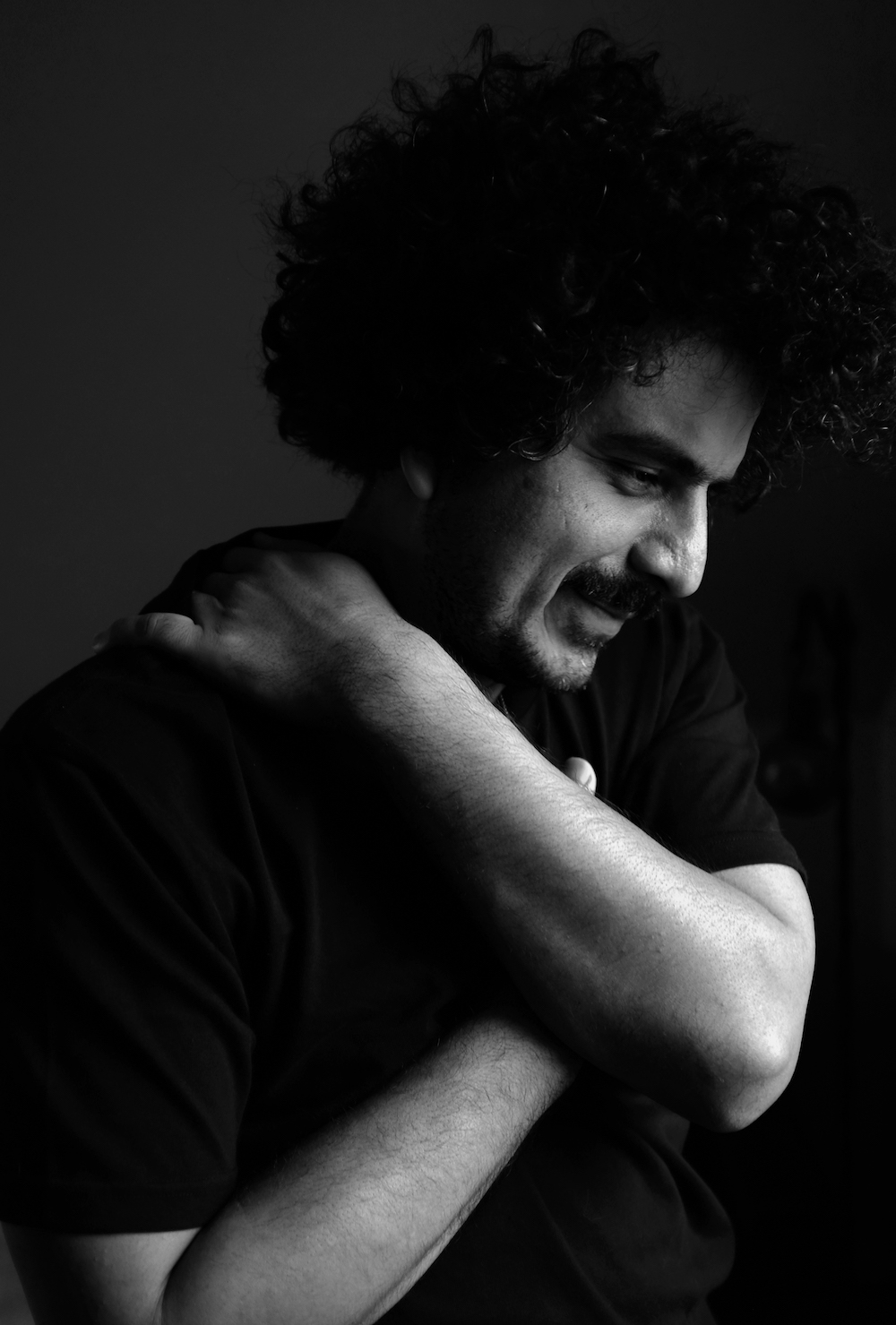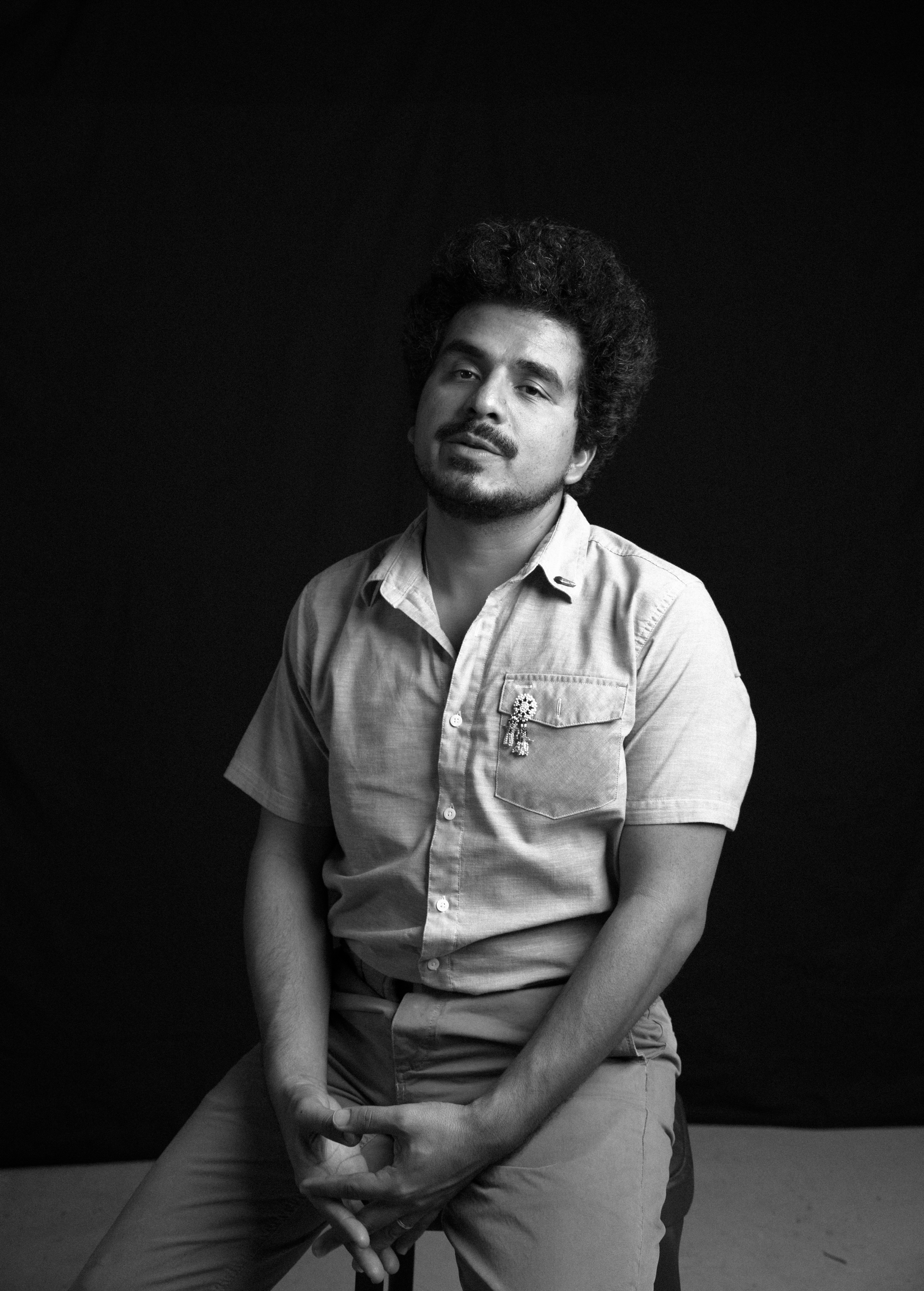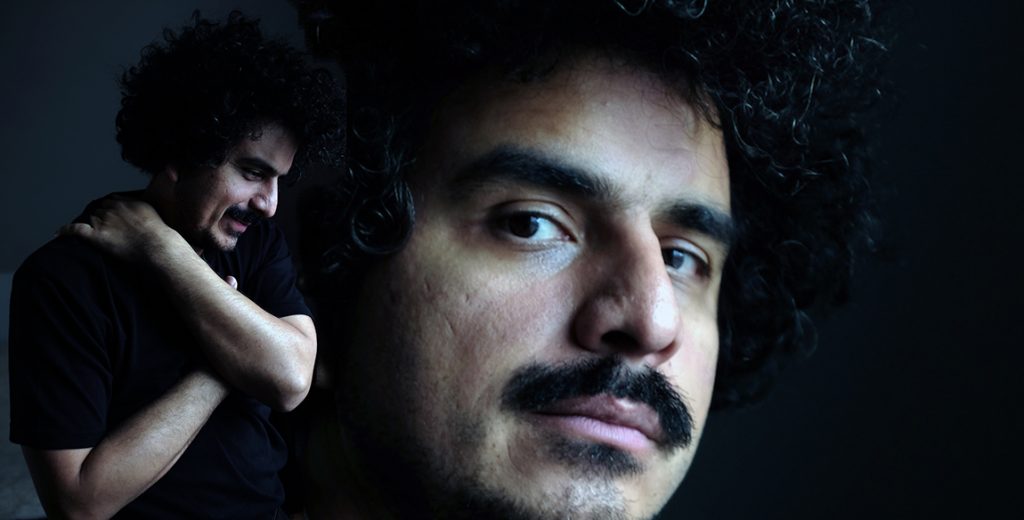Editor’s note: In this conversation, Downtown Boys frontperson Victoria Ruiz sits down with Helado Negro to talk about their experiences touring as brown musicians under Trump.
For those of us with family members who were forced to migrate for survival, our relatives often pray for our physical security: a job with a desk, a home with a kitchen table, being able to say “I have to wake up early for work” – the list goes on. When those of us with musical ambitions decide to relinquish the security of an office job and become touring artists, it can be hard for our family to understand.
Being a touring musician means preparing for absolute extremes – physically, emotionally, and economically. For many people without the resources to tour, the necessity of online music spaces and hometown scenes is real. However, for those who do get in a van and decide to travel, often on long car rides and for months on end, finding moments of resilience is important. It means being excited about that one gas station snack, looking forward to a 30-minute coffee break with a friend who lives in the city you’re playing in, or getting a text from a partner or family member.
But when you walk into a gas station or go get a bite to eat before you play, you are made vulnerable to all the power dynamics of the place you’re visiting. Needless to say, structures of power and privilege – such as race, gender, physical ability, sexuality, and mental health – feel much more potent on tour, especially in unfamiliar places outside of your own community.

Helado Negro (aka Roberto Carlos Lange) knows this struggle intimately. Lange has been a touring musician for more than 10 years, and he’s played everything from giant stages to small basements in the woods. His sonic landscapes challenge listeners to think about the legacies of colonialism, and reveal how that history determines our everyday realities. This is definitely a result of Lange’s commitment to touring and encountering people who don’t look like him, think like him, or aren’t coming from a history of struggle and future of liberation.
On the day of Trump’s election, Lange once again confronted the reality of touring as a brown musician in the United States. That day, Lange posted a series of tweets about his experience being racially profiled during a traffic stop.
https://twitter.com/HeladoNegro/status/796031804432121857
As someone who is also in a touring band, every time we get stopped by a cop for things like “taking too wide of a turn” or “having an object hanging from the rearview mirror” and the band member driving is brown, a cloud of emotion settles over my body. Sure, it happens to white musicians, too, but artists who look like me are impacted by a particular system of oppression. It makes the white bros at our shows (or online trolls) who say they “don’t get our music” all the more painful.
For Lange, the cost of navigating racism to help his Latinx fans build resilience and wipe away self-hatred is immense. That mission becomes even more complicated considering the current U.S. political climate, where black and brown communities face new waves of targeted violence.
I sat down with Helado Negro in the border town of McAllen, Texas, at Yerberia Cultura, a music space created for and by people of color and Latinx folks from the Rio Grande Valley. Lange had just bought a Downtown Boys shirt, because all of his clothes were stolen out of his van in Seattle. I spoke with him about his life as a touring musician, his musical vision and message, and how he navigates institutions of power in the United States.
How long have you been a touring musician? What is it like being a bilingual musician who is a person of color touring the country, and being places where the majority of people have voted for or stand for values that go against some of the themes in your music?
I started touring in 2004. I would mainly tour in Japan. It was all this hip-hop and experimental stuff I’d do at clubs. It was six city shows from 2004-2010. Being in a place where no one spoke the language that I spoke but [still connected to] the music – it was understood that I looked different from everyone; there was not really a gray area.
But then starting to tour in the U.S…it was fucked up. You get all these little things and feelings in public spaces that you felt reflexes to already, and then [you] play clubs where people are like, “What’s this music? Who is this?” And you’re left feeling sensitive and feeling defensive. That’s the hardest thing – I’ve had to learn how to not be defensive. You have to learn to curb yourself and not give into people’s bullshit. It’s not about having a thick skin; it’s about being sensitive and learning to talk about it or not talk about it…You’re not always going to want to take it there.

It seems like a trite question, but what role does being a touring musician have in our current power map in the United States?
I think music has always had varying degrees of political ideas. There have been so many people fighting and raising their voices by using their platform to elevate other people. I hope people begin to seek out those who have been doing this for some time for guidance and wisdom.
“That’s the hardest thing – I’ve had to learn how to not be defensive.”
It’s inevitable that I have an opinion about our current administration — I’m not into it. I think I have more to offer from touring and interacting with people and understanding humans than being part of town halls or something like that. I don’t have a huge history of understanding the nuances. I just voted for the first time because I didn’t believe in this shit. I never believed in it, really. My participation in this last election had a huge impact on me; maybe I was played this time and it finally got to me.
The ability to recognize where we are and use it – instead of just critiquing everyone else and what they should be doing differently – is huge. I talk to mad people who have a very “Yeah, I don’t think there is anything we can do” feeling. Why music? You could do anything, Roberto.
I’ve never been a complete anarchist in any sense, but there’s always a part of me that wants to tear apart the establishment or people who feel so set in a certain way. I don’t know how it works and I don’t know if I want to spend my energy in the system.
It’s fucked up because music is the best way to talk about a lot of this. When I’m listening to everything and people ask me questions, I’m like, “I just said it in the song.”
Órale pues.
That’s the whole thing about the complexity of the spirit. Collecting cassettes and vinyl isn’t why people make music. I make it because I feel shit. It’s spiritual. I think I have a new connection right now. I’m excited to feel again.
Your shows and music are accessible to so many people, it seems. It’s like you’re the sun and many different planets have their own orbit around you. One of those orbits is a crowd that wants music that can invoke a political message. What are the roots of your more political songs, like “Young, Latin, and Proud” and “It’s My Brown Skin?”
I used to release hip-hop beats on [experimental electronic label] Beta Bodega and their mission was focusing on South American politics. It focused on farmers and indigenous people. The label brought in Latinx artists who were doing weird electronic music that evolved around different themes. The label was militant, and that’s always been there in me. I’ve woven in social ideas more, so that the political themes and concepts evolved into Helado Negro.
“A lot of my world is informed by my aggression.”
A lot of my world is informed by my aggression. When I have a band, [they] are coming from a noise and free jazz world. I want us to fuck people’s brains up, and people can feel this push and pull. My channel can’t be forever defined; we’ve got to push and pull.
Why do you think touring and playing live shows is worth the risk of traveling, of being by yourself a lot, of having to live out of a suitcase, or having to understand the political spectrum of where people are coming from?
We are at a point right now where we are trying to make [bigger] decisions on how to interface with that. Not so much being real, but respecting yourself and knowing your values. You’re responding to every moment that you’re on stage. There’s no strategy. You’re growing and responding to all the situations…it’s organic. You can’t forget that it’s your show. It’s my show and I want to share this with you and bring you into this world. If I build this respect, this room, then people will respect me. If I respect people in the crowd, that informs me.
Whenever I’m doing anything, I want to be the happiest [I can be]. I know that might [sound] selfish, but I know that if I’m the happiest, then I know that what I give out to people in that space will be the best that I could put out there. For me, I’m always trying to build up and navigate everyone to the end of a show. I want to figure out [how] to dispatch [to] people, not just lift people up, but keep moving.







